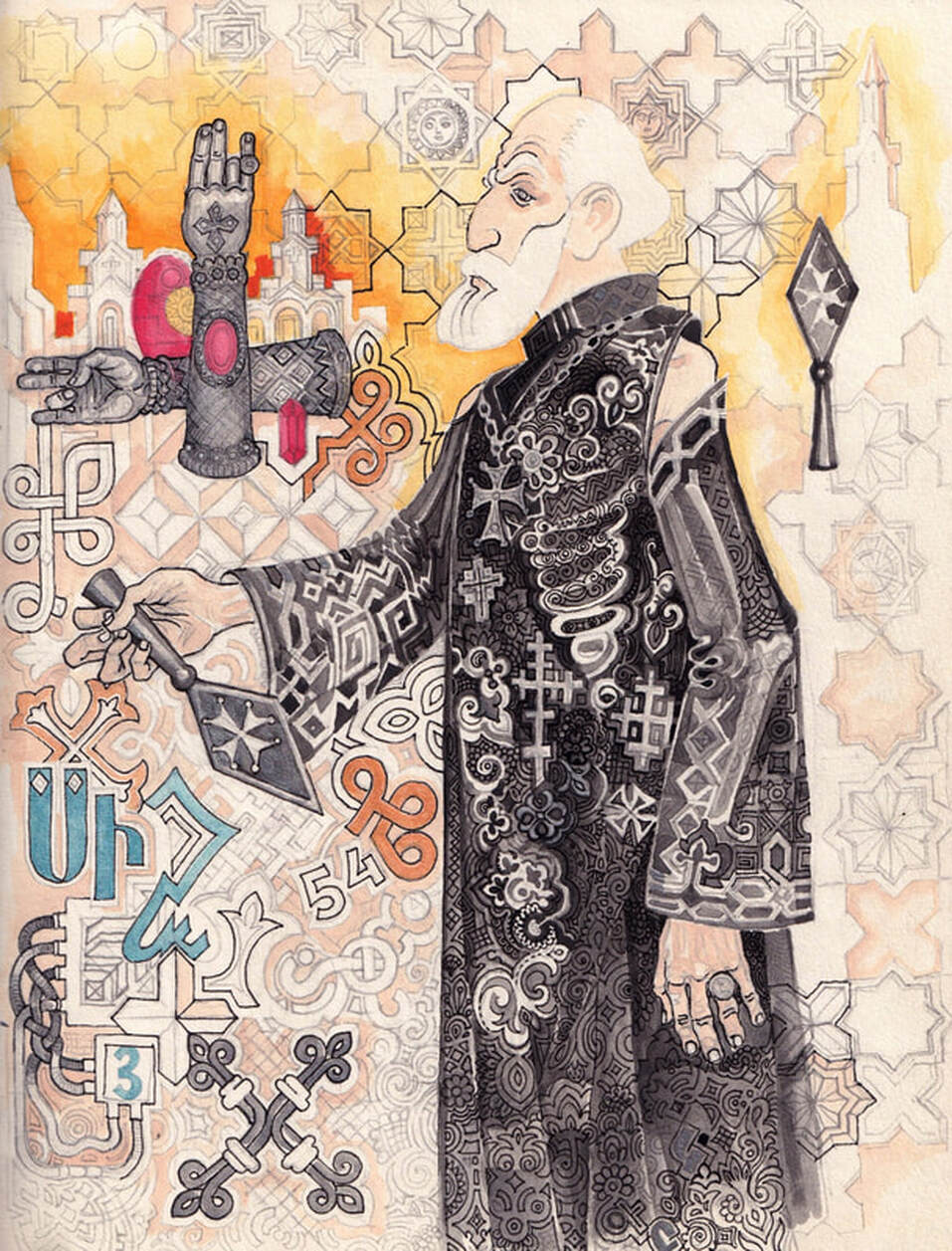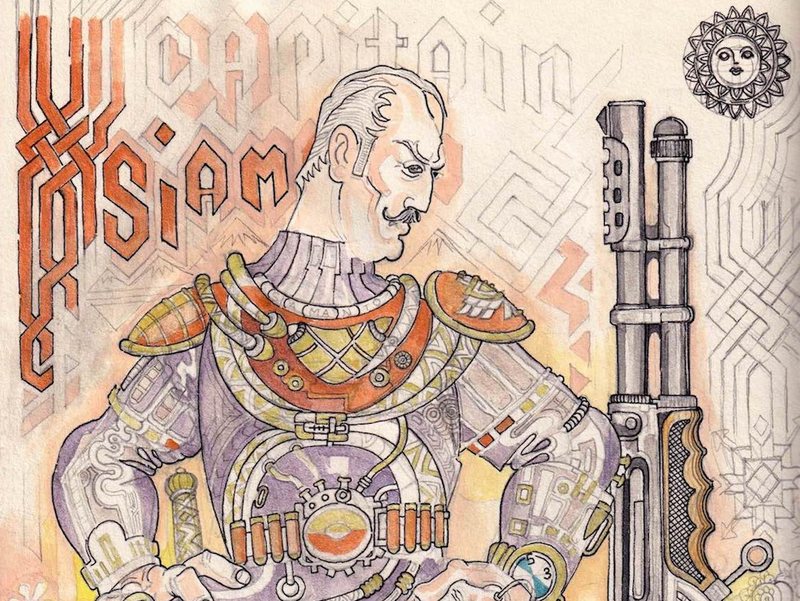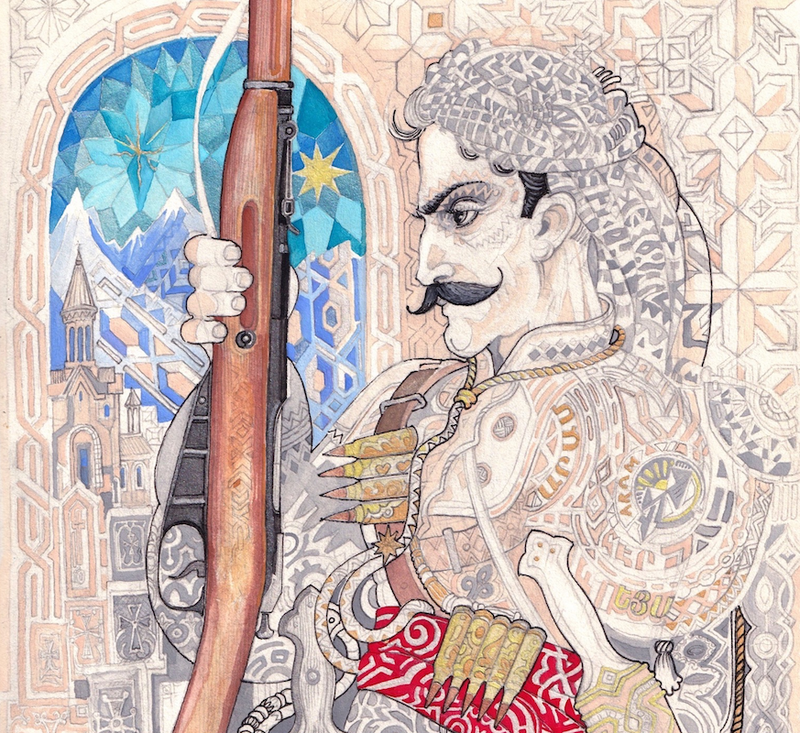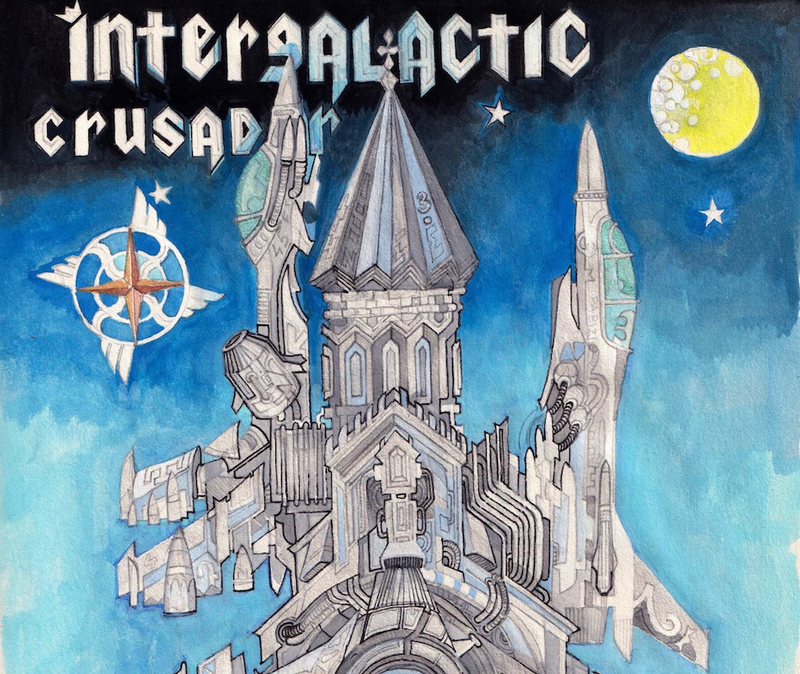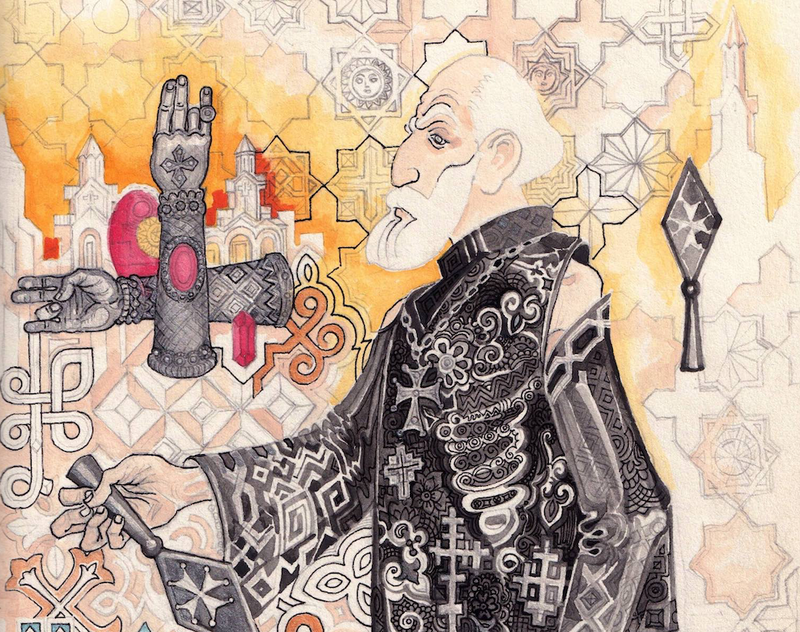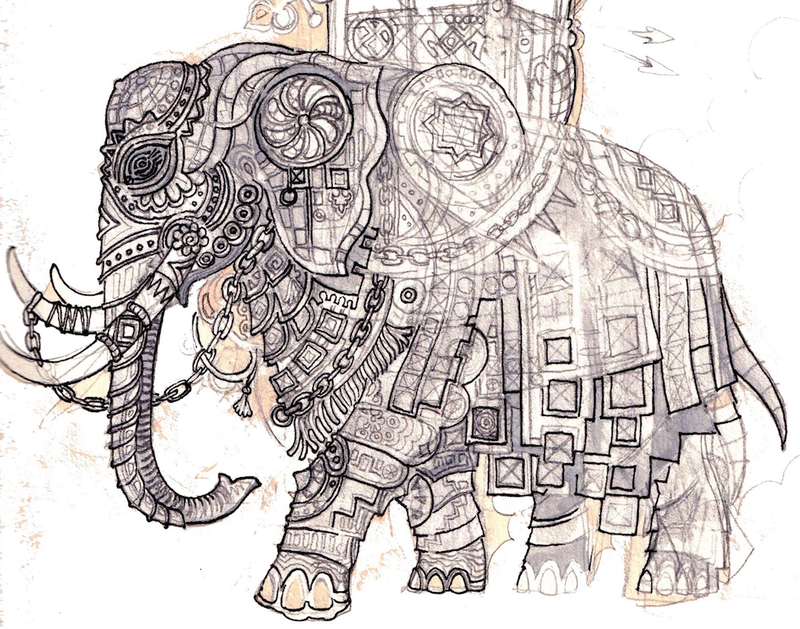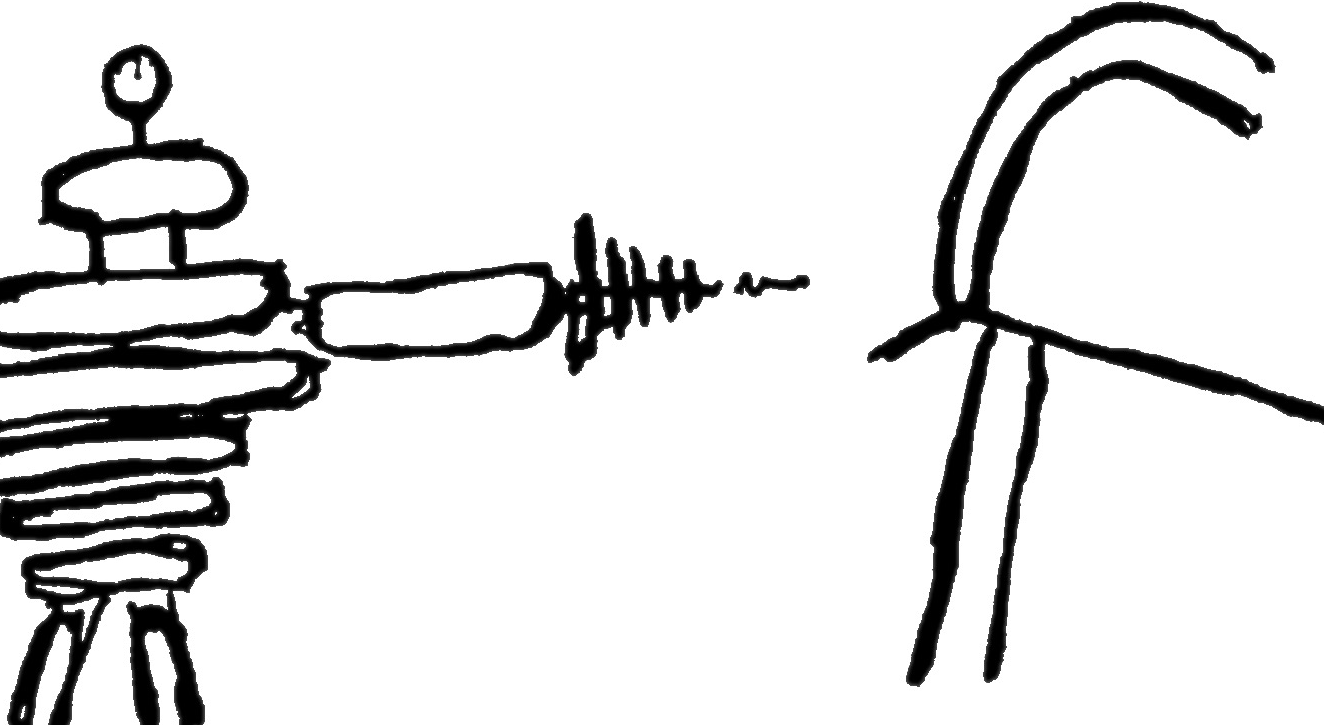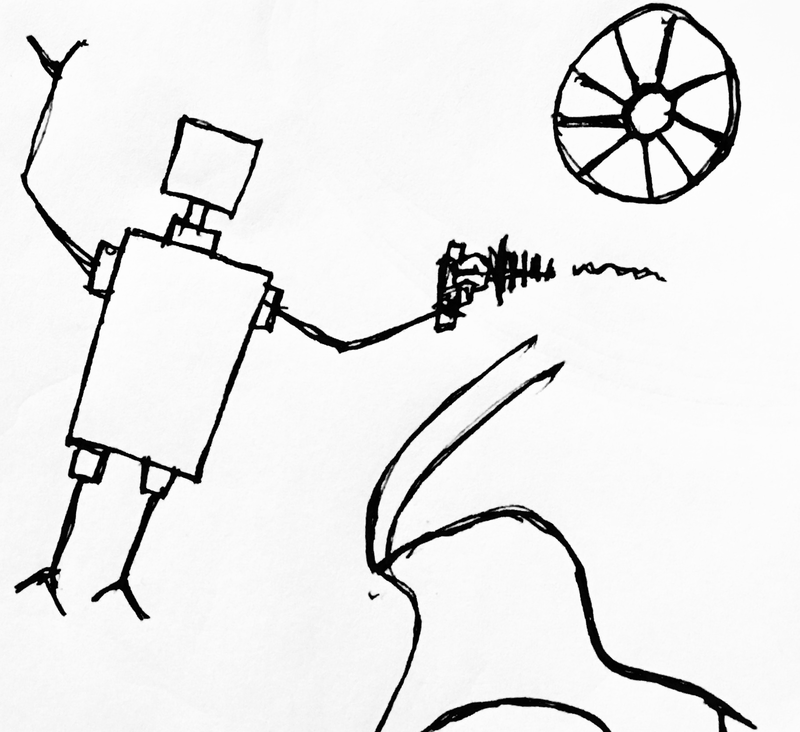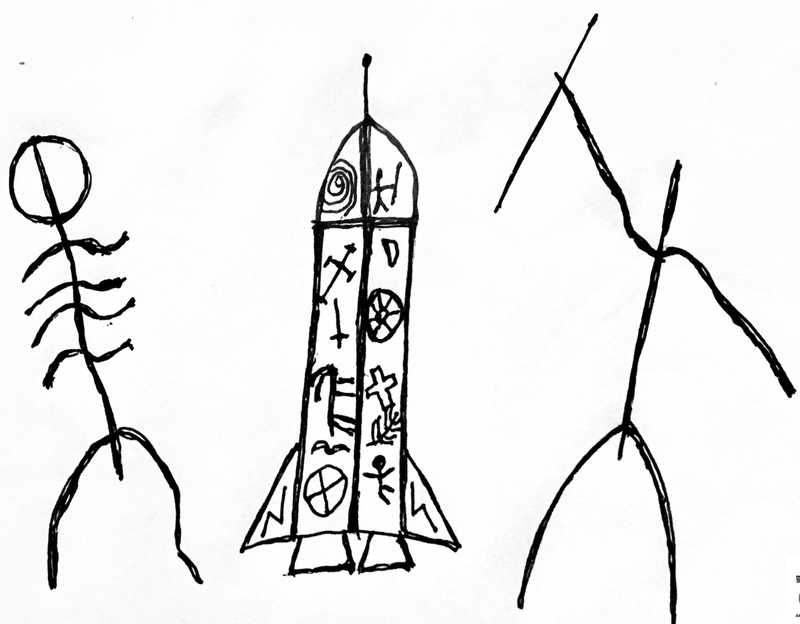ORIGINAL ARTWORK © DAVID MKRTCHYAN
(Excerpt...)
AVARAYR
And, from the great plain of Avarayr on that dark night in 451 AD, a bright fiery streak could be seen by all near and far--as far as the eye could see and beyond. It seemed a colossal ball of flame was rushing across the heavens, earthbound. Its arc illuminated the night sky in brilliant hues of color and light and, eventually, made landfall not far from the still peaceful plain.
Thousands of soldiers on either side of this great field, eyes wide, mouths agape, looked to the skies above in awe and fear as two armies of a great battle, nigh, made ready for war. The leaders of the opposing sides, their holy men in tow, made haste to quell the fears now growing even in their bravest warriors. They explained, with great reverence, passion, and gratitude, that the gods had sent a fiery blessing, ushering them to victory against their enemies and spilling fire, literally, upon the heads of their foes.
Of course, and ironically, both sides viewed the same event as the same thing--some sort of omen portending a fortuitous victory for themselves, a sign from the gods, and from God, sanctifying their forthcoming triumph.
The event was noted later in the proximate histories of the time as "a sign from the heavens," "a curse, hexing and vexing" Vartan Mamigonian's courageous last stand. Centuries later scientists and other historians would contend the fiery ball sited in 451 AD was an interstellar object from a galaxy millions of light years from our own and these very same scientists, thereafter, awaited its reappearance around the same time every year, with much hoopla and pomp. Millions of dollars or their equivalent, were spent attempting to retrace the potential trajectory of the object--possibly a comet or an asteroid--in hopes of uncovering its origins.
It was dubbed "Karlson 221" in honor of the scientist who unfortunately "tied his wagon to the star" (no pun intended...) of this misconstrued phenomenon and was never seen again.
But, in fact, it was something else altogether.
Captain Siamanto Njteh Karamaronian, Commander of the Intergalactic Armenian Forces, First Expeditionary Group, was barely able to navigate his ship, a modified Crusader 1890 Mark II, Gallactic Interceptor, as it was spit out like a watermelon seed from the Orion Wormhole and eventually into the Earth's stratosphere. The fiery arc through the heavens was no gravitas inducing divine signal, awe inspiring comet, or errant asteroid. The Captain had, once again, overshot his mark through the time-space portal and, truly, could not understand what had gone wrong.
He had been aiming for the center of the Armenian Highland sometime during the Hamidian Massacres of 1894 to 1896, but had ended up in 451 AD, near the plain of Avarayr, approximating the Persian border and he felt no grandeur or nobility at this moment as his ship finally came to a crashing halt some distance from the plain of Avarayr.
“Fuck.”
“And, Fuck, again,” the Captain lamented to himself and to anyone within earshot as the craft lurched and finally began to settle amidst plumes of smoke and the moans of his passengers and crew.
Captain Sio, as his intimates called him, had during his last foray into the deep of space and time, ended up much closer to his target, in fact spot-on one could say, but had issues with the time-scalings of the event horizon, and had to cut his mission short.
It was during this last expedition that he also broke all the rules of time-travel--the most heinous transgression being the taking on board of not one, but four passengers from the Armenian Highland of 1915 and was now bound with this human cargo, ad infinitum. Moreover, the fateful consequences to the succession or regression of events in and around the continuum were unimaginable and, quite probably, horrific.
One should also remember that Captain Sio had no mandate whatever for these missions from the Armenian Intergalactic Security Council, to which he had vowed allegiance and in whose service he had garnered a great many commendations for bravery and courage. He, of all people, was now a rogue operator pursuing, what he thought, was the only way to finally set right the universal balance of good and evil.
Thousands of soldiers on either side of this great field, eyes wide, mouths agape, looked to the skies above in awe and fear as two armies of a great battle, nigh, made ready for war. The leaders of the opposing sides, their holy men in tow, made haste to quell the fears now growing even in their bravest warriors. They explained, with great reverence, passion, and gratitude, that the gods had sent a fiery blessing, ushering them to victory against their enemies and spilling fire, literally, upon the heads of their foes.
Of course, and ironically, both sides viewed the same event as the same thing--some sort of omen portending a fortuitous victory for themselves, a sign from the gods, and from God, sanctifying their forthcoming triumph.
The event was noted later in the proximate histories of the time as "a sign from the heavens," "a curse, hexing and vexing" Vartan Mamigonian's courageous last stand. Centuries later scientists and other historians would contend the fiery ball sited in 451 AD was an interstellar object from a galaxy millions of light years from our own and these very same scientists, thereafter, awaited its reappearance around the same time every year, with much hoopla and pomp. Millions of dollars or their equivalent, were spent attempting to retrace the potential trajectory of the object--possibly a comet or an asteroid--in hopes of uncovering its origins.
It was dubbed "Karlson 221" in honor of the scientist who unfortunately "tied his wagon to the star" (no pun intended...) of this misconstrued phenomenon and was never seen again.
But, in fact, it was something else altogether.
Captain Siamanto Njteh Karamaronian, Commander of the Intergalactic Armenian Forces, First Expeditionary Group, was barely able to navigate his ship, a modified Crusader 1890 Mark II, Gallactic Interceptor, as it was spit out like a watermelon seed from the Orion Wormhole and eventually into the Earth's stratosphere. The fiery arc through the heavens was no gravitas inducing divine signal, awe inspiring comet, or errant asteroid. The Captain had, once again, overshot his mark through the time-space portal and, truly, could not understand what had gone wrong.
He had been aiming for the center of the Armenian Highland sometime during the Hamidian Massacres of 1894 to 1896, but had ended up in 451 AD, near the plain of Avarayr, approximating the Persian border and he felt no grandeur or nobility at this moment as his ship finally came to a crashing halt some distance from the plain of Avarayr.
“Fuck.”
“And, Fuck, again,” the Captain lamented to himself and to anyone within earshot as the craft lurched and finally began to settle amidst plumes of smoke and the moans of his passengers and crew.
Captain Sio, as his intimates called him, had during his last foray into the deep of space and time, ended up much closer to his target, in fact spot-on one could say, but had issues with the time-scalings of the event horizon, and had to cut his mission short.
It was during this last expedition that he also broke all the rules of time-travel--the most heinous transgression being the taking on board of not one, but four passengers from the Armenian Highland of 1915 and was now bound with this human cargo, ad infinitum. Moreover, the fateful consequences to the succession or regression of events in and around the continuum were unimaginable and, quite probably, horrific.
One should also remember that Captain Sio had no mandate whatever for these missions from the Armenian Intergalactic Security Council, to which he had vowed allegiance and in whose service he had garnered a great many commendations for bravery and courage. He, of all people, was now a rogue operator pursuing, what he thought, was the only way to finally set right the universal balance of good and evil.
But, right now, Captain Sio and his crew, as well as his four anachronous passengers--the Village Girl, the Priest, the Farmer, and the Fedayee—had even greater operational matters with which to deal. Captain Sio had ended up smack-dab in the middle of what was soon to be the infamous Battle of Avarayr—also known as the Vartanants Battle among the Armenians.
“Oh, sweet Lord on a quantum modulator,” the confounded Captain capitulated.
The battle of Avarayr was well known even among the Intergalactic Armenians of Planet Armenia, 3000 years hence, as an important event demarcating the Armenian national identity over time and space for eons to come.
In 451 AD, the newly Christian Armenian nation (301 AD), and its, similarly, newly Christian General, Vartan Mamikonian, fought the Zoroastrian Persians for the Armenian right to believe in the God they wanted to believe in. The Armenians were, as they loved to remind everyone in the galaxy at every opportunity, the first nation on earth to accept Christianity as a state religion. Never mind that the Armenians or their Armenid ancestors were the first worshipers of light and fire and what not, as well…
The battle, as most well known clashes, was remembered for the overwhelming odds against which one side had to fight, but in this case the heroic side--the Armenians—did not beat the greater, brimming Persian force, but lost--in fact, were almost decimated. Yet, the Armenians celebrated this military shutout as a great moral victory of faith because the Armenian nation refused to give up their religion and beliefs, even when set upon by tens of thousands of heathens and, believe it or not, scores of armored elephants.
What people don’t know is that the battle, which the Armenians did fight valiantly, causing great losses to the outnumbering Persians, could have been a military knockout for the first Christian nation of a magnitude never before witnessed by the human species so accustomed and addicted to bouts of tremendous violence.
For, you see, Captain Sio, trying to make the best of a clearly disastrous situation, decided to take his expeditionary force on a little expedition, while his crew tried to repair centrifuge modules, light refractors, and, in general, propagate an event horizon or find an extant ancient portal nearby to facilitate their timely departure. That expedition, unbeknownst to his force and passengers, but known so clearly and dearly to the Captain, aimed to venture into the great battle that was soon to begin, sporting weaponry from the distant future and of dire planet crushing proportion, thus, forever changing the course of history.
That is if, of course, still more things would not go wrong.
“Oh, well….” Captain Sio mused, “If I can’t stop one enemy of my people maybe I can stop another…”
The Captain’s whole reason for going rogue in the first place—his whole raison d’etre—was, in fact, to right the wrongs against his people and to steer history onto a righteous plane and restore the balance for all. Thus, the wormhole hopping, the black hole bopping, the quasar quandaries, and all the rest had ensued in some sort of closed system logic, landing him at the right places at the wrong times or the wrong places at the right times or whatever…
Captain Sio now figured that Vartan could use a little help and, who knows, the modified outcome could have a fortuitous Doppler effect through space-time and the Red Sultan may not be born or could be born differently or the Hamidian Massacres would not occur saving countless hundreds of thousands of lives and, thus, hopefully, the stage for the Armenian Genocide would never have coalesced.
Needless to say, Captain Sio’s guests, plucked from the claws of genocidal Turks at the beginning of the 20th century, were awestruck, baffled, flabbergasted, and near madness, except for the Prince of Erzeroum, the Fedayee who had shown great courage, calm, and reason in the face of calamity, when confronted by the surrealism and impossibility of Captain Sio’s appearance, there, at Mher’s Door right at the moment of their imminent demise. The rest were stricken with fear, especially after Captain Sio’s obliteration of the Turk officers and their own subsequent boarding onto his monastery spacecraft.
The Prince, however, was in awe--in a good way--curious eyes shining bright, tears welling up with happiness as he not only recognized Captain Sio as kindred and kin, but grew proud at seeing the Intergalactic Survivors of the Armenian Genocide surviving so beautifully.
--akm
© Ara Mgrdichian
